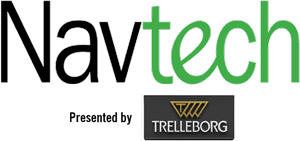Navtech is produced by Colibri Northwest.
Speaker Biographies
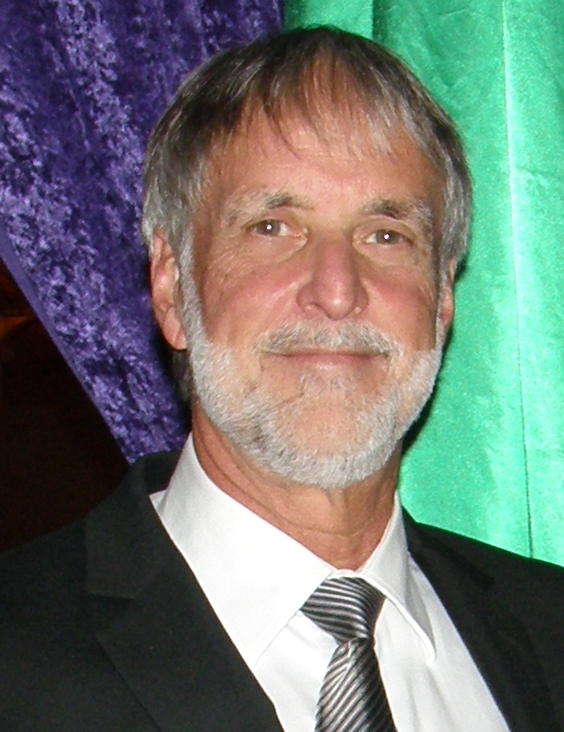
CAPT Paul Amos
Columbia River Pilots
Paul was born and raised in Denton, Texas. In 1974 he permanently relocated to the Pacific Northwest where he was employed continuously in the tug and barge industry for 16 years. From 1980 to 1990 he worked as captain on towing vessels on the Columbia/Willamette/Snake River system. He has a wide range of experience on various types of towing vessels but the majority of those years were spent on grain barge tows between Portland, OR and Lewiston, ID.
For the last 31 years, beginning in 1990, Paul has been a Columbia River Pilot. As a member of the Columbia River Pilots (COLRIP) he served two years as Treasurer and was Vice President in 1999. He was re-elected as Vice President in 2006. Shortly afterwards he became President and has served continuously in that position since then. He was also deeply involved in developing COLRIP’s AIS-based navigation system and continues to work on improvements to that system. He is a past President of the Pacific Northwest Waterways Association, a past Chairman of the Lower Columbia Region Harbor Safety Committee and has served on a variety of industry related boards and committees.
Paul is married to a sailor, Della, one of the first women to graduate from Kings Point Merchant Marine Academy. He has 3 adult children and lives in Vancouver, WA.
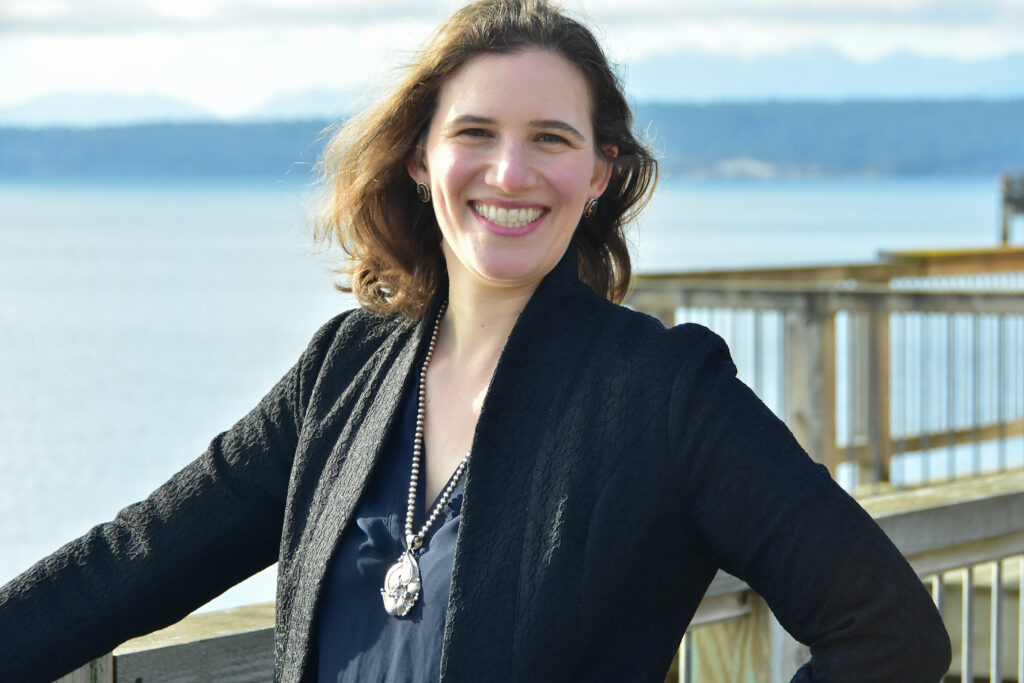
Rachel Aronson
Maritime Blue
Rachel Aronson is the Quiet Sound Program Director at Washington Maritime Blue, a NGO that seeks to accelerate the sustainability and equity of the blue economy. Quiet Sound, founded in 2021, seeks to better understand and mitigate the impacts of large commercial vessels, such as cargo, ferry and cruise ships, on the endangered Southern Resident Killer Whales in Washington State. Quiet Sound is a state-wide coalition of local, state, federal and tribal governments, the maritime sector and conservation NGOs. Rachel holds an M.M.A. from the University of Washington’s School of Marine and Environmental Affairs, as well as a B.A. in Biology and Hispanic Studies from the University of Pennsylvania.
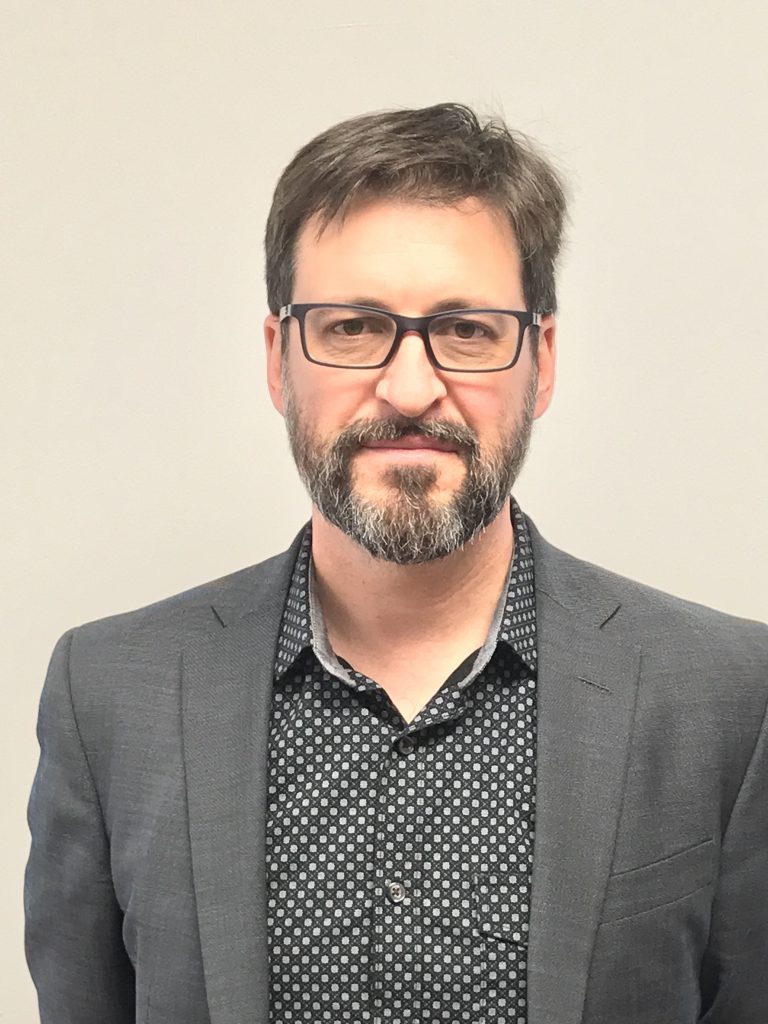
CAPT Alain Arseneault
National Center of Expertise on Maritime Pilotage
Captain Alain Arseneault is an active St.Lawrence river pilot. He is a graduate of Rimouski’s Maritime Institute in Canada. After being issued a Master Mariner certificate in 1998, he obtained his first command the following year on a product tanker. His career then evolved on the management side for a while as he held senior management positions with a Canadian shipping company. It is during that period that Captain Arseneault pursued postgraduate studies, being awarded an MBA. He then entered the apprentice program on the St.Lawrence River and finally was issued a pilot license in 2005. After gaining 10 years experience and an unlimited Class A pilot license on the river, he held various management positions within the Central St. Lawrence Pilot Corporation where he acted as President from 2017 to 2021.
Fascinated by innovation and new technologies, Captain Arseneault participated in several technical maritime committees within his group and ultimately lead the technical committee of his National Association (Canadian Maritime Pilots Association) in addition to being elected national Vice-President for the Laurentian in 2017. He participated among others, to the introduction of the latest generation of pilot portable units (PPU) and rate-of-turn generator (ROTG) for his group of pilots. Capt. Arseneault now serves as President of the Canadian national center of expertise on maritime pilotage, and he is actively involved in several technology innovation forums as a participant and speaker.
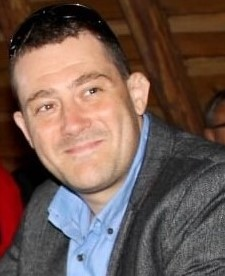
CAPT Cedric Baumelle
Laurentian Pilotage Authority
A graduate of the Institut Maritime du Québec (IMQ) in navigation and holder of a Master Mariner’s certificate, Captain Baumelle has over 25 years of experience in the maritime field. Throughout his career, he has worked as an officer and captain on several types of merchant ships, as an electronic navigation instructor on IMQ simulators, and for almost 10 years, as an inspector and manager for Transport Canada’s Marine Safety Division where he also acted as a Canadian delegate for maritime affairs on various national and international committees as well as at the International Maritime Organization. Since August 2020, Captain Baumelle has joined the Laurentian Pilotage Authority as a special advisor on transit efficiency to manage the “Optimized Pilotage Services” initiative and to oversee the development of the navigation simulator.
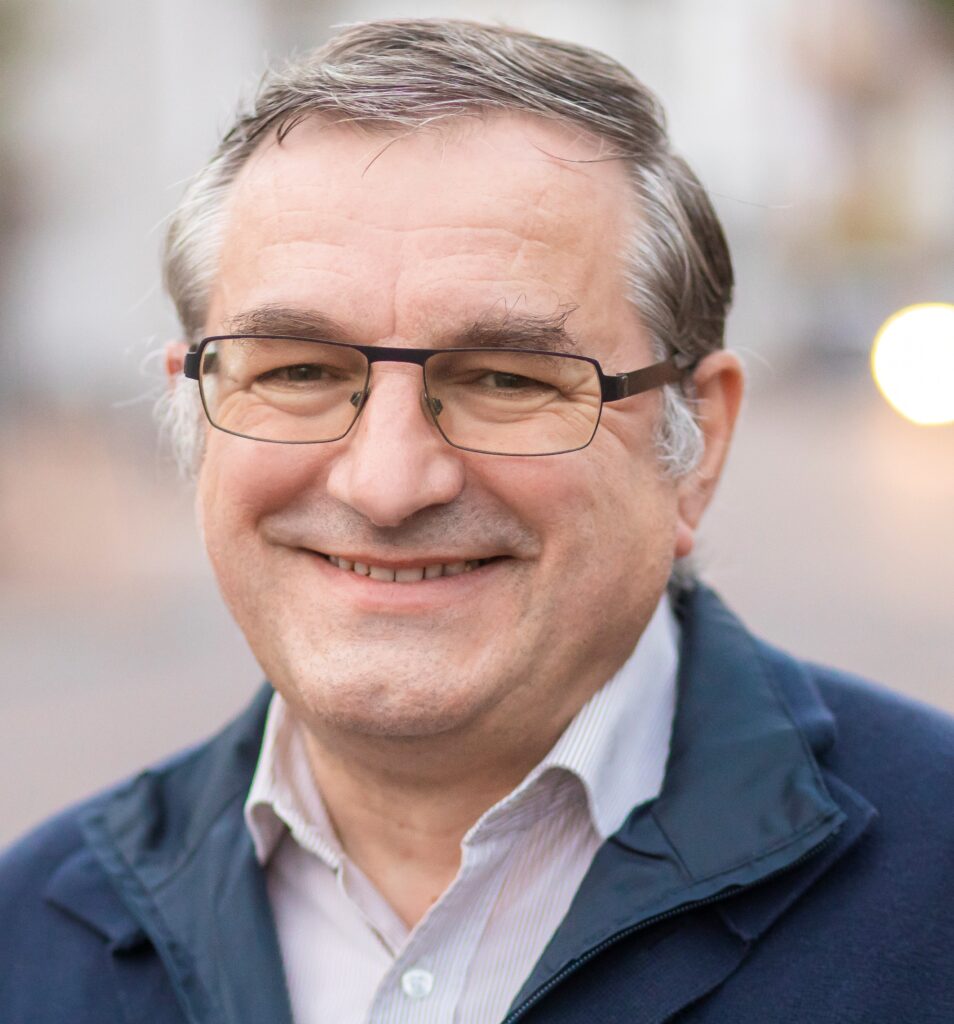
Michael Bergmann
BM Bergmann-Marine
With a Software engineering background and large experience in aviation, Mr. Bergmann in 2005 started working with governmental organizations and industry to change the maritime market to improve navigation and efficiency.
He works as Business Developer for the company Marine Fields, owns a maritime consultancy company, supports the German IMO work and contributes at IHO, IALA, IEC and others.
Mr. Bergmann was CIRM President from 2013 to 2018. He is “Fellowship of the Royal Institute of Navigation” in London, UK and “Associated Fellow of the Nautical Institute”.
In 2017 Mr. Bergmann initiated the “International PortCDM Council” and serves as secretary.
He is author of various articles and publications, often speaker at conferences and guest lecturer at Universities and Academies as well as visiting Professor at the Maritime University of Szczecin.
Mr. Bergmann holds a degree as Master of Business Administration from University of Liverpool, UK, and a master’s degree of educational theory, theology, psychology, sociology and others from Cath. University of Applied Science in Mainz, Germany.
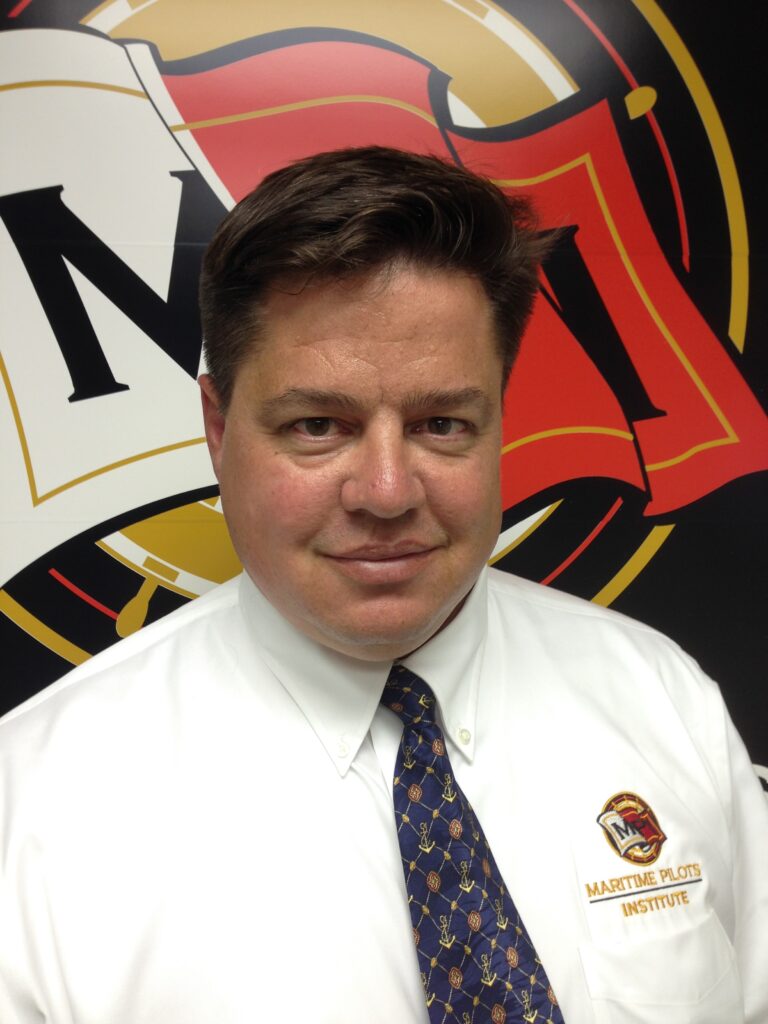
George Burkley
Executive Director, Maritime Pilot’s Institute
Mr. George Burkley serves as the Executive Director of the Maritime Pilot’s Institute in Covington, Louisiana and is a Partner in LOCUS LLC. MPI specializes in training, research and technical projects for maritime pilots. The institute operates both electronic simulation and physical modelling training and research facilities. George is a 1989 graduate of the California Maritime Academy and completed his master’s work at Johns Hopkins University in Baltimore. He served as an aviator in the US Navy and sailed for Hawaiian Tug and Barge and Masters, Mates and Pilots as a ship’s officer.
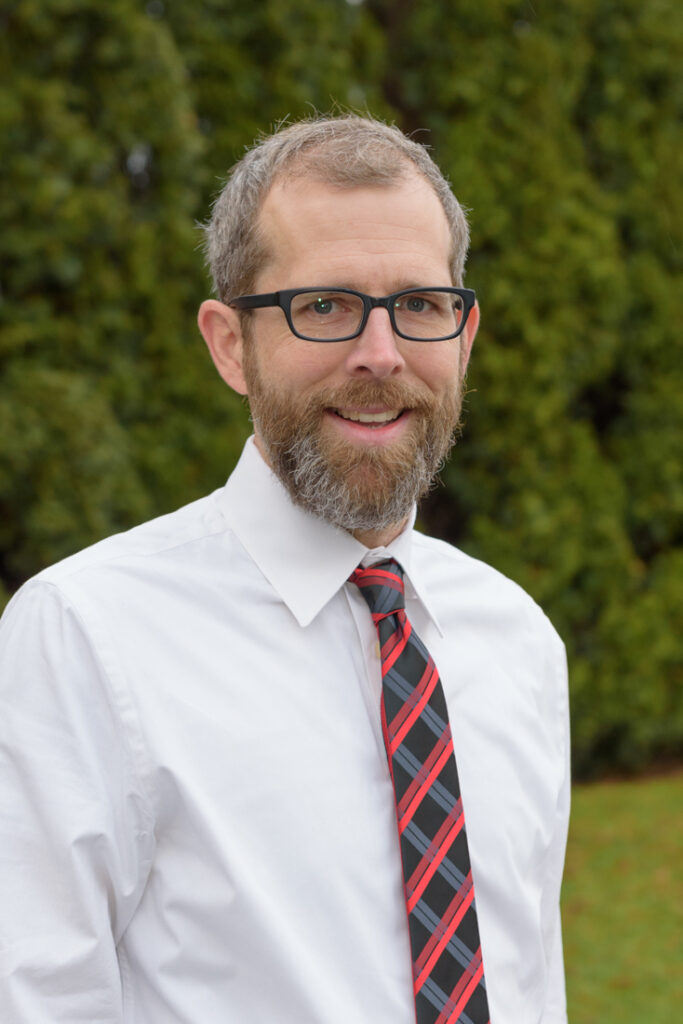
Jason Creech
Vice President, David Evans and Associates
Jason Creech is a Vice President at David Evans and Associates, Inc. (DEA) where he serves as the Nautical Charting Program Manager. He oversees DEA’s hydrographic survey contract with NOAA Office of Coast Survey and frequently advises clients on charting and navigation related topics. Jason was project manager for NOAA’s precision navigation surveys of the Houston Ship Channel and the Lower Mississippi River and has contributed to numerous other unique projects during his 25-year career, including serving as the liaison between Holland America Line and the United Kingdom Hydrographic Office (UKHO) to develop a new Band 5 ENC from a DEA survey of a private island in the Bahamas.
Jason also leads DEA’s initiative to enhance navigation services to pilots and the maritime community by working with portable pilot unit manufacturers and pilots to develop custom bathymetric data sets to improve safety of navigation. He serves on the NSPS-THSOA Hydrographer Certification Board and is a member of the International Hydrographic Organization (IHO) Hydrographic Surveys Working Group.
Jason holds a Bachelor of Science degree in Natural Resource Management from North Carolina State University, a Master of Environmental Management from Portland State University, and is a National Society of Professional Surveyors (NSPS) and The Hydrographic Society of America (THSOA) Certified Hydrographer (CH).
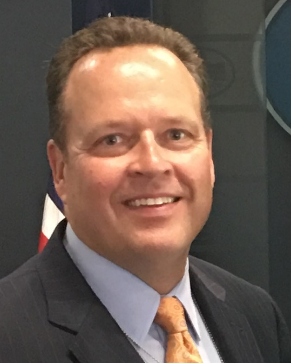
Clay Diamond
Executive Director-General Counsel, American Pilots Association
Clay Diamond is the Executive Director-General Counsel for the American Pilots’ Association[1] (APA). Prior to that, he served 13 years as APA’s Deputy Director-Associate General Counsel. A 1989 graduate of the Coast Guard Academy, he also earned a Master’s Degree from Rensselaer Polytechnic Institute and a Juris Doctor from Case Western Reserve University School of Law. During law school, he earned the award for “Highest Proficiency in Admiralty Law.” In addition, he was a Fellow at the Massachusetts Institute of Technology Center for International Studies. He is admitted to the Ohio and District of Columbia Bars and is a member of the Maritime Law Association of the U.S.
As General Counsel, he represents pilots and the piloting profession before Congress, federal agencies, and State and local legislative and administrative bodies. He also advises pilot groups and pilotage authorities on operations, practices, business structures, and oversight of pilots and pilotage systems. He has served on more than fifty U.S. Delegations to the International Maritime Organization (IMO) and currently serves as a subject matter expert on U.S. Delegations to IMO’s Maritime Safety Committee; Subcommittee on Navigation, Communications and Search and Rescue; and Subcommittee on the Human Element, Training and Watchkeeping. Mr. Diamond is also an instructor at the Maritime Institute of Technology & Graduate Studies, California Maritime Academy, and the Maritime Pilots Institute, where he teaches courses on the Legal Aspects of Pilotage. As Executive Director, he manages APA’s office operations, membership services, and administrative activities.
Mr. Diamond regularly speaks on pilotage and pilotage law and has been published in professional trade and law journals, including as co-author of “Unique Institutions, Indispensable Cogs, and Hoary Figures: Understanding Pilotage Regulation in the United States,” University of San Francisco Maritime Law Journal, 2010-11. He was also a contributing author for the book “IMPA on Pilotage” (2014 Witherby Publishing Group), and a contributing editor for a chapter in “The American Practical Navigator – Bowditch” (2017 Lighthouse Press).
In 2012, Mr. Diamond was appointed by the Secretary of Homeland Security to serve on the Navigation Safety Advisory Council, a federal advisory committee that provides navigational safety recommendations to the Commandant of the Coast Guard.
During his 20-year Coast Guard career, Mr. Diamond served aboard several Coast Guard cutters, culminating with command afloat. During these operational assignments, he was On-Scene Commander during the early hours of the 1996 crash of TWA Flight 800, participated in the seizure of over $300 million in illegal drugs, the interdiction of hundreds of illegal migrants in the Caribbean, and the execution of heavy weather search and rescue cases in the North Atlantic and Bering Sea.
In the legal field, Mr. Diamond served as regional counsel for Coast Guard operations in the eight Great Lakes states, Coast Guard Liaison to the State Department (where he was legal advisor to U.S. delegations to IMO), and as the Coast Guard’s Legislative Counsel. In addition, following 9/11 Mr. Diamond was the first Coast Guard lawyer assigned to support the Department of Defense’s (DoD) Military Commissions, where he served as a Special Advisor to the DoD General Counsel and assisted in preparing prosecution cases for some of the most significant terror suspects in U.S. custody. Mr. Diamond also served on the faculty of the Defense Institute for International Legal Studies where he conducted maritime law seminars in Asia, Africa, and Europe, and was also appointed as a Special Assistant U.S. Attorney for the Northern District of Ohio.
In 2002, Mr. Diamond was chosen by the American Bar Association as the “Outstanding Young Military Lawyer.” Other honors include two Coast Guard Meritorious Service Medals, the Joint Service Commendation Medal, the State Department Superior Honor Award and the NOAA General Counsel’s Award.
Mr. Diamond and his wife Sharon have two grown children and one grandchild and reside in Burke, Va.
[1] The APA, one of the country’s oldest trade associations, is the national association for the piloting profession. It was established in 1884 to protect and improve the state pilotage system, to maintain the highest possible professional standards for licensed pilots in the U.S., and to promote navigation safety. Virtually all of the more than 1,200 State-licensed pilots working in the 24 U.S. coastal States, as well as all of the U.S. registered pilots operating in the Great Lakes system under authorization by the Coast Guard, belong to APA member pilot groups. These pilots handle well over 90 percent of large ocean-going vessels moving in international trade in U.S. waterways. The role and official responsibility of these pilots is to protect the safety of navigation and the marine environment in the waters for which they are licensed.
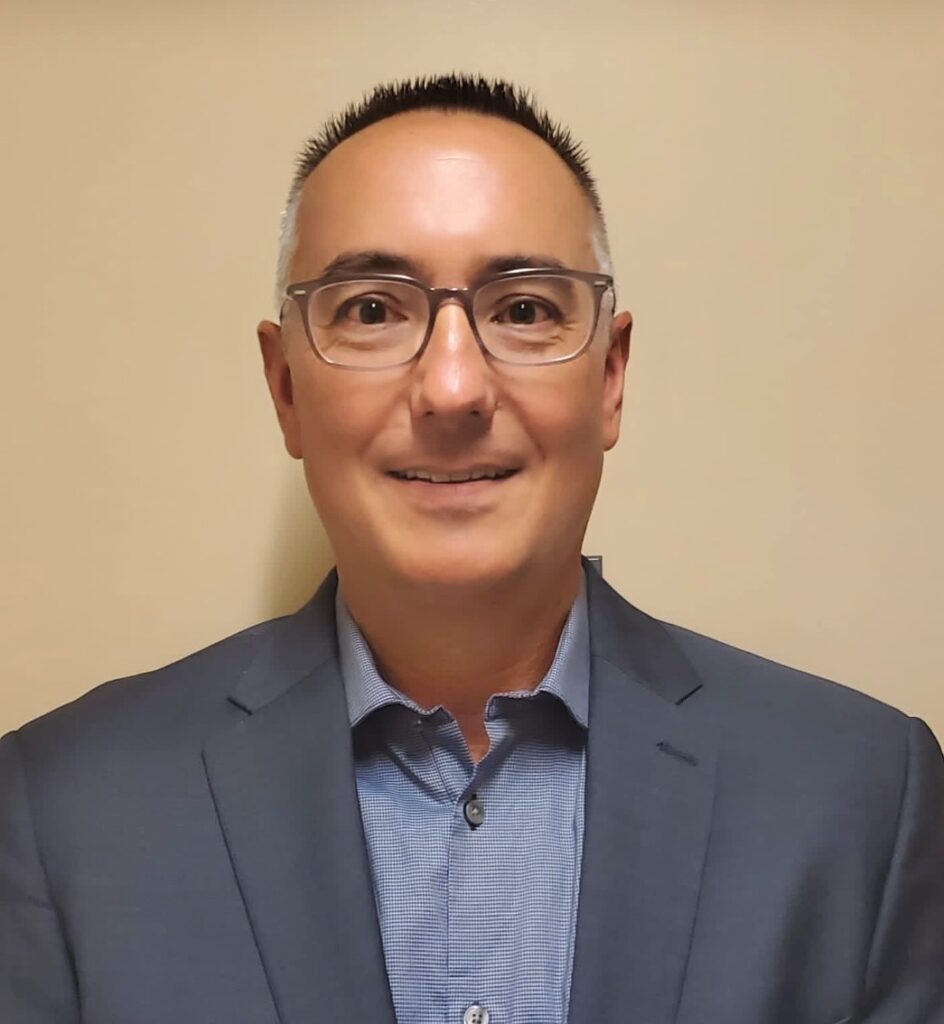
Kevin Doyle
Captain, F/V Bering Defender
Kevin Doyle is the Captain of the F/V Bering Defender, one of Global Seas’ top producing refrigerated sea-water Bering Sea trawlers, catching wild Alaskan pollock. Throughout his career in the commercial fishing industry, Kevin has been a witness to and participant in many of the advances in maritime and vessel wheelhouse technology that has made fishing more efficient, environmentally sustainable, and safe.
Kevin is a native Pacific Northwesterner, born and raised in Edmonds, Washington. Kevin began his fishing career at the age of 18 when he started as a processor on a commercial trawler out of Washington. Since then, Kevin has experienced nearly all the roles aboard commercial fishing vessels. Kevin has worked on the processing line and as a deck hand on the first dedicated Surimi boat in the America’s, the C/P Artic Storm. He has worked on the fillet processing line aboard the C/P Northern Glacier. After his time aboard that vessel, Kevin joined the crew of the C/P Starbound. It was during this point in his career that Kevin began actively acquiring and improving his mariner’s credentials – eventually working his way up to become the deck-boss aboard the C/P Starbound. It was also during his time aboard the C/P Starbound that Kevin expanded his commercial fishing range by gaining added experience as a crab fisherman and as a salmon tenderer. Following his time on the C/P Starbound, Kevin joined the crew of the F/V Starward and eventually worked his way up to become the vessel’s Engineer and later Mate. Kevin than took another big advancement in his role aboard a commercial fishing vessel and joined the F/V Artic Wind as, first her Mate and Relief Captain, and later as her full time Skipper. And, for the last ten years, Global Seas has been lucky enough to have Kevin serve on the F/V Bering Defender as her full time Captain.
As mentioned, in addition to the wealth of experience he acquired at each of the various roles onboard commercial fishing vessels, Kevin has also devoted himself to continual improvement and mastery of being a mariner and a leader. Kevin first obtained his Mates 1600 GRT Near Coastal License for uninspected fishing industry in 1993. He is now on the 6th issuance of this license. He also holds a Master 1600 GRT Upon Oceans License for both the uninspected fishing industry and non-fishing vessels. And finally, Kevin his Mate 1600 GRT Upon Oceans License (uninspected fishing). As a testament of his tenacity and drive, of the 35+ years Kevin been a commercial fisherman, he has spent 22 years as a Captain.
During the many years Kevin has spent in various roles and ultimately as a vessel skipper in the commercial fishing industry, he has also had the benefit and opportunity to see and take part in the
development of technologies and methods that have made the commercial fishing industry safer, more sustainable, and more efficient. Kevin was aboard the F/V Starfish in 1991 when the vessel was equipped with GPS, and as a new AB certificate holder, he was excited to employ the new technology and techniques to his vessel’s advantage. This technology alone changed the way mariners navigated the seas. Then in the late 90’s Kevin took the opportunity to study the industry’s most modern radars with ARPA. This system enhanced the safety of maritime navigation significantly. Kevin was also in the wheelhouse in the early 2000’s when AIS systems were broadly implemented and installed aboard his vessel and others in the industry. Finally, Kevin has been party to and saw the equipping and use of reliable internet and internet programs, while at sea. To Kevin, having a vessel equipped with modern and reliable internet has changed the way fishing is done. It has improved vessel tracking, catch accounting and tracking, at-sea communication, and weather reporting – among many other things. Finally, Kevin has also been in the wheelhouse of a fishing vessel during the evolution of fishing specific wheelhouse electronics, thus giving him an intimate knowledge of the newest technology and the advances that technology has over the relics of the past. Where there was once rope, speed, and trawl doors and the only way to know what a net was doing was head rope depth and primitive net pictures; now Kevin is able to use a tremendous wealth of innovative technology to commercially fish. In stark contrast to the past, in his wheelhouse aboard the F/V Bering Defender, Kevin utilizes all the most modern fish finders, sonars, down sounders, catch indicators and flow indicators, trawl door and net sensors and cameras, among many other technologies – to harvest Wild Alaskan Pollock in a way that is more efficient, safer, and cleaner and more sustainable.
Having spent so many years in the industry, during a time of rapid technological advancement, Kevin has a wealth of knowledge about the state of wheelhouse electronics and how it has improved commercial fishing.
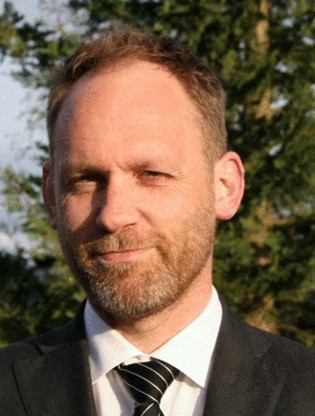
Cato Giil Eliassen
Kongsberg Seatex
Cato Giil Eliassen has the role as Product Manager for the business area Navigation and Infrastructure in Kongsberg Seatex. In the period stretching from 2002 to 2015 he was a Project Manager mainly working with AIS and DGPS infrastructure projects around the globe. He was educated at the Norwegian University of Science and Technology (MSc) and at the RNoN Naval Academy. He served in the Norwegian Navy for nine years. The last two years as a squadron leader for the HSC combat vessels in the costal ranger division.
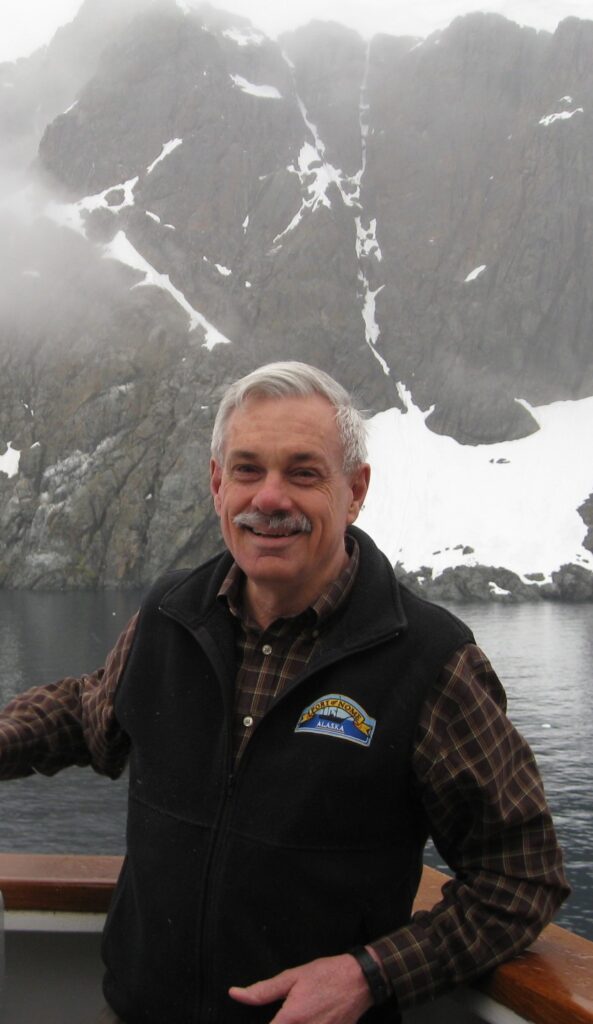
Rear Admiral Jeffrey Garrett
US Coast Guard (ret)
During 31 years on active duty in the U.S. Coast Guard, Rear Admiral Garrett served in a variety of command, operational and staff assignments. His shipboard assignments included polar icebreaking deployments throughout the eastern and western Arctic and in Antarctica in the polar icebreakers Burton Island (WAGB 283) and Polar Star (WAGB 10), and as commanding officer of Polar Sea (WAGB 11), mostly in support of scientific research and logistics. As the first commanding officer of Healy (WAGB 20), he brought the nation’s newest polar icebreaker and premier polar research vessel through delivery, shakedown operations and ice and science trials in the eastern Arctic, and through the Northwest Passage to homeport in Seattle. Other Coast Guard service included the Vessel Traffic Service in Valdez, Alaska, command of a Great Lakes icebreaker, and multiple programming and budgeting staff assignments at Coast Guard Headquarters. As a flag officer, he served as the Coast Guard’s Director of Resources, responsible for the service’s budget and long-range planning, and as commander of Coast Guard operations in the Pacific Northwest.
Since retiring in 2005, Rear Admiral Garrett has served as a member of National Research Council committees evaluating Polar Icebreakers in a Changing World (2007) and National Security Implications of Climate Change for U.S. Naval Forces (2011). He has participated in a variety of other studies, including Polar Operations and Policy options for the Coast Guard, an assessment of developing Coast Guard high-latitude requirements, and a business case analysis of U.S. polar icebreaker needs. As a consultant for a variety of maritime and polar-related projects, he has evaluated vessels for operations in ice-covered waters, served as a dispute resolution board member for new Washington State ferry construction, worked with the Indonesian Navy on coastal surveillance operations, and acted as ice-pilot on cruise ships in Antarctica. He has testified before committees of the U.S. Congress and the Alaska Legislature, and is currently chair of the safety committee for the national oceanographic fleet.
A graduate of the U.S. Coast Guard Academy, Rear Admiral Garrett earned a Master of Science degree in Management from the U.S. Naval Postgraduate School in Monterey, California and attended the Industrial College of the Armed Forces as a research fellow. He held an unlimited-tonnage license as Second Mate, and is the recent author of Polar Icebreakers: Past, Present and Future, The Sea Chest, Puget Sound Maritime Journal, Spring 2022.
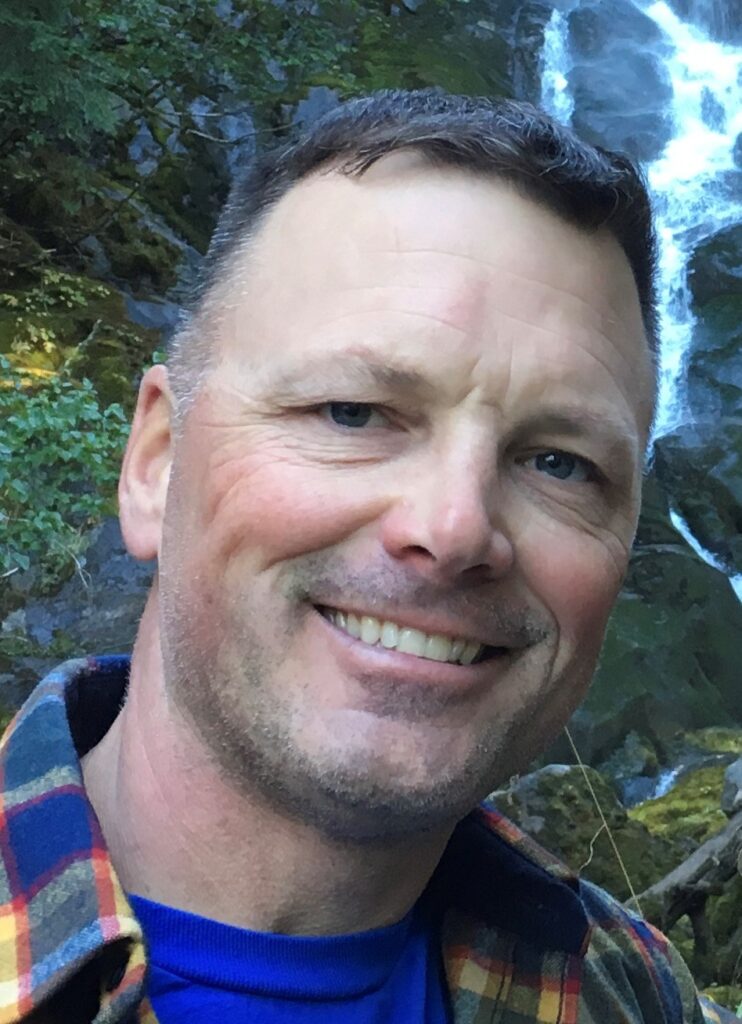
John Hollingsworth
Marine Exchange of Alaska
John Hollingsworth has been the Chief Operating Officer for the Marine Exchange of Alaska since retiring in 2020 from the Coast Guard where he served for 31 years.
John enlisted in the Coast Guard in Florida while still in high school. After graduating from the Coast Guard Academy, he began his career in Eureka, CA as a Deck Watch Officer on the cutter ACUSHNET. With an interest in aviation, he attended U.S. Naval Flight Training in Pensacola, and received his wings in 1997. His operational aviation, staff and educational tours of duty took his family to Borinquen, PR, Savannah, GA, Purdue University, Washington DC, Kodiak, AK, Kailua, HI, Newport, RI, and finally to Juneau, AK, as Chief of Incident Management, where he was responsible for all search and rescue and pollution response operations throughout Alaska.
In his current role, he manages a 24-hour operations center which performs sea traffic management for vessels traveling along the Great Circle route through the Aleutian Islands between the far East and the West coast of the U.S. He’s also responsible for information technology and field operations, which includes the functional design, installation, operation, and maintenance of the Marine Exchange’s more than 150 Marine Safety Sites throughout coastal Alaska. These “MSSs” contain a combination of AIS, weather sensor, DSC, current sensor, and VHF-FM transmitter equipment to gather and share information to maritime stakeholders.
John, his wife and their three children stay busy outdoors while fishing, camping, hiking, skiing, and whatever else their love of Alaska presents them.
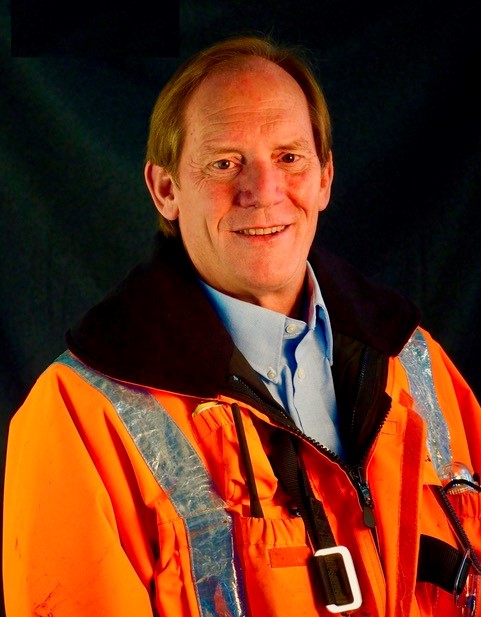
CAPT Dan Jordan
Columbia River Bar Pilots
Captain Dan Jordan is the Administrative Pilot of the Columbia River Bar Pilots and has been piloting for 18 years.
He graduated from the California Maritime Academy and spent twenty-four years at sea before joining the pilots. Twelve of these years Captain Jordan sailed as master of freighters in international trade. He carried all types of dry cargoes from bulk, roro and containers to breakbulk and heavy project cargoes.
During this time, he concurrently served as an officer in the Navy Reserve where some of his assignments were as an instructor at the Navy’s Shiphandling School.
Captain Jordan currently serves on the Board of Trustees for the Columbia River Maritime Museum and the Pacific Northwest Waterways Association.
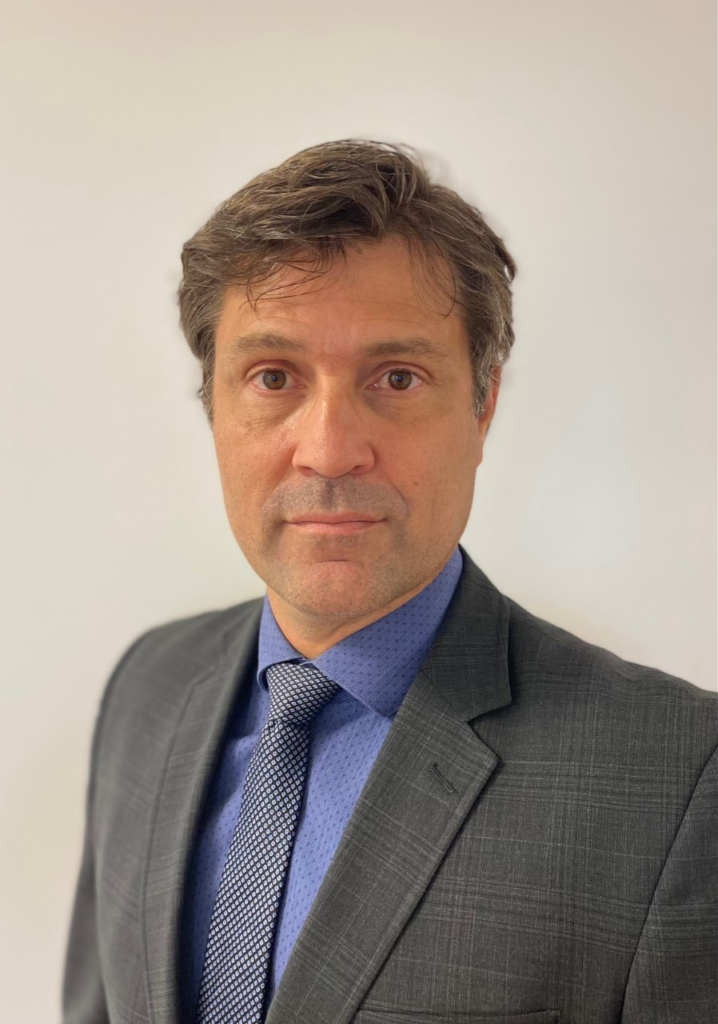
CAPT Philippe Kaufmann
Mid St-Lawrence Pilot
Captain Kaufmann has been a pilot on the St-Lawrence river for the last 20 years. During that period he was involved in the training of apprentices pilot and the continued proficiency of pilots. Since 2018 has been appointed president of the Mid St-Lawrence Pilot technical committee where he is working on designing and intergrating technological tools into the pilotage techniques and PPUs.
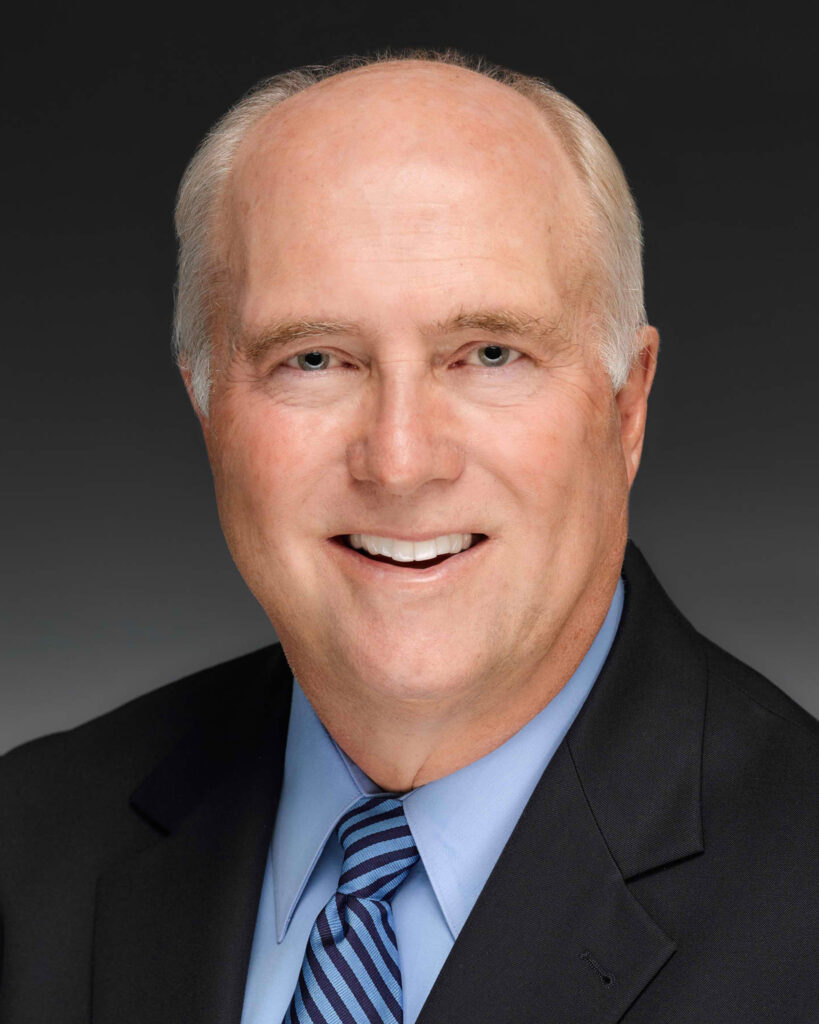
Paul Kirchner
American Pilots’ Association
Paul Kirchner is Senior Counsel of the American Pilots’ Association in Washington, D. C. From 1992 to 2020 he was Association’s Executive Director and General Counsel. Prior to coming in-house with the Association in 1992, he was outside attorney for the Association with the maritime law firm of Kurrus and Kirchner
Mr. Kirchner has represented pilots and the interests of the piloting profession before Congress, federal agencies, and state and local legislative and administrative bodies since graduating from the University of Virginia School of Law in 1978. He has testified and commented on, and assisted in the drafting of, pilotage laws and regulations, both federal and state. He has advised pilot groups and pilotage authorities on the operations, practices, business structures, and oversight of pilots and pilotage systems. He is a frequent speaker and writer on various aspects of the piloting profession and navigation safety.
From 1994 to 2004, Mr. Kirchner served as chairman of the Pilotage Law Subcommittee of the Maritime Law Association’s then Committee on Navigation and Coast Guard. In 1993, Mr. Kirchner developed, and until 2020 administered the APA’s Bridge Resource Management for Pilots training program. He also teaches several proprietary courses on the Legal Aspects of Pilotage.
Since 1997, Mr. Kirchner has been a member of the United States delegations to over 60 meetings of International Maritime Organization committees and subcommittees. At the 33rd session of the STW Subcommittee in 2002, Mr. Kirchner was chairman of the drafting group that prepared the final text of what was subsequently issued as IMO Resolution A.960 (XXIII) setting international guidelines on the training, certification, and operations of maritime pilots.
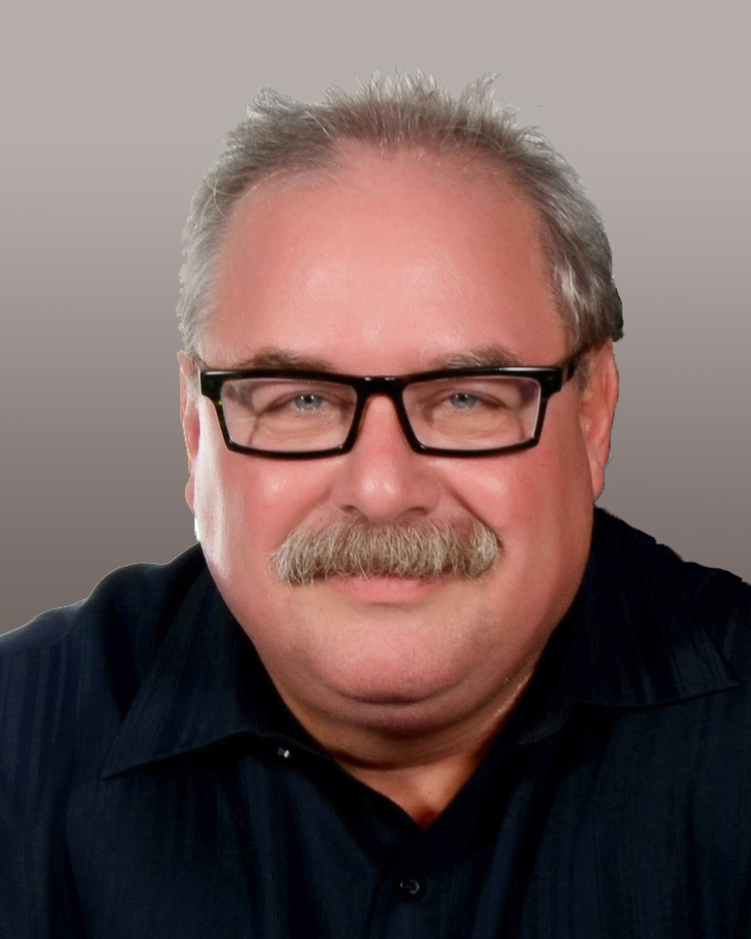
Jonathan Kjaerulff
MITAGS
Director of Business Development
Jon obtained his first license (as a Danish yacht master) at the age of 17, and subsequently attended the U.S. Merchant Marine Academy at Kings Point, New York. After graduating in 1983, he sailed in positions from deckhand to Master aboard ships and workboats all over the world. After running a support vessel during the Exxon Valdez cleanup effort in Prince William Sound, Jon came ashore and founded Fremont Maritime Services in Seattle, Washington. Over the next 27 years, Jon established a reputation as a pioneer in the field of maritime safety, survival and firefighting training. His company was one of the very first organizations in the U.S. to obtain Coast Guard approval for STCW Basic Safety Courses, and from 2003 to 2015 Fremont Maritime was the only private company utilized by the U.S. Navy to provide marine firefighting training to its military sailors. Over the years Jon and his team worked with tens of thousands of inland and offshore mariners, providing training not only at Fremont’s school in Seattle, but at customer locations in Alaska, Oregon, California, Florida, Europe, Australia and the Caribbean. When MITAGS established the Pacific Maritime Institute in Seattle, Jon worked to forge a strong working relationship between the two schools.
In 2017, Fremont Maritime was purchased by MITAGS, and Jon came aboard as a marine safety training and business development specialist. At the beginning of 2021, he took over as Director of Business Development.
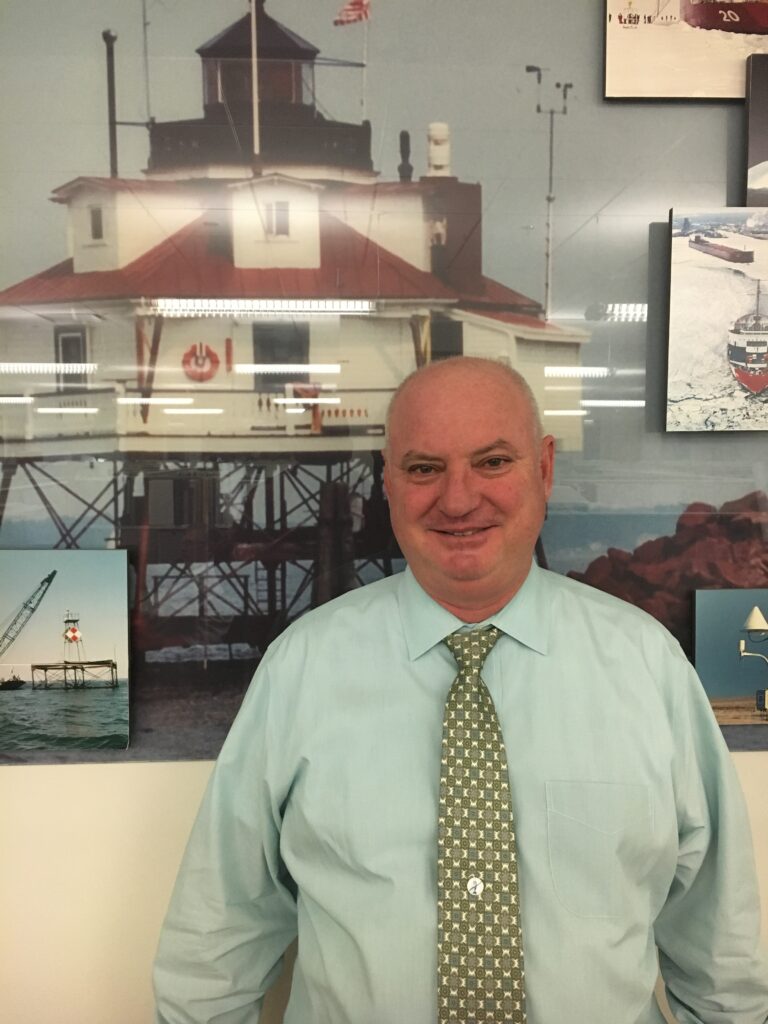
R. David Lewald
David Lewald is a navigation systems and aids to navigation specialist for the U.S. Coast Guard. He served for 30 years on active duty in the USCG with 25 of those years spent afloat aboard numerous cutters in all positions including command. He has been a USCG civilian employee since his retirement in 2014. David’s responsibilities include advisory and consultative services to USCG programs and managers on a broad range of navigation matters that involve legacy and future state technology. He serves as an advisor and subject matter expert to the Director of Marine Transportation Systems on digital and electronic navigation matters and systems, including electronic chart systems (ECDIS\ECS), automatic identification system (AIS), integrated navigation systems (INS), integrated bridge systems (IBS), navigation sensors (e.g. Radar, GPS, etc.), and electronic aids to navigation. David serves as a navigation systems technical expert to standards development organizations such as International Maritime Organization (IMO), International Hydrographic Organization (IHO), International Association of Marine Aids to Navigation and Lighthouse Authorities (IALA)(Vice Chair of the IALA-ARM Committee), Committee on the Marine Transportation System (CMTS), International Electrotechnical Commission (IEC), National Marine Electronics Association (NMEA), and Radio Technical Commission for Maritime Services (RTCM).
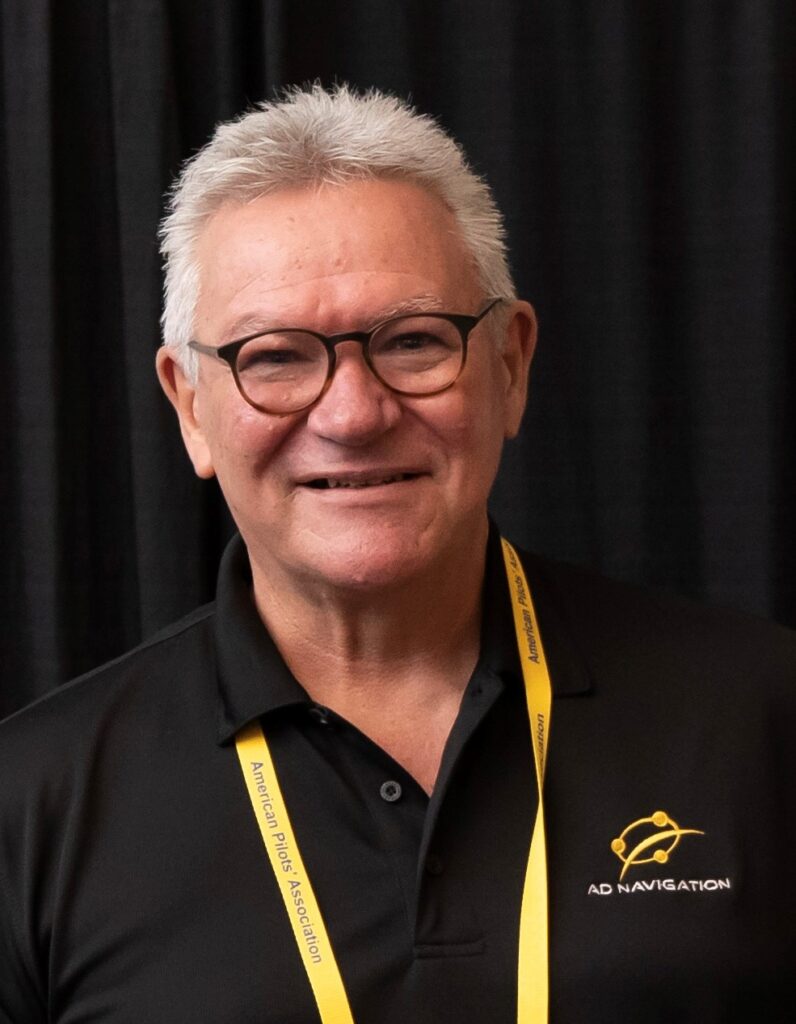
Dale Marsh
Director of International Sales & Marketing, AD Navigation AS
Mr Dale Marsh is Director of International Sales and Marketing for AD Navigation AS of Norway. Based in Auckland New Zealand, and regularly travelling internationally, Dale is a regular attendee, exhibitor, and presenter at pilotage conferences worldwide. Dale first became involved with PPU systems and technology in 2016, and is passionate about collaborating with pilot groups to select PPU systems that deliver the accuracy, reliability, premium after sales support, and training required. A recreational sailor, in his pastime he enjoys sailing, and has chartered yachts and catamarans in the Vava’u Group, Tonga, French Polynesia, Whitsundays, and of course New Zealand’s stunning Hauraki Gulf and Bay of Islands.
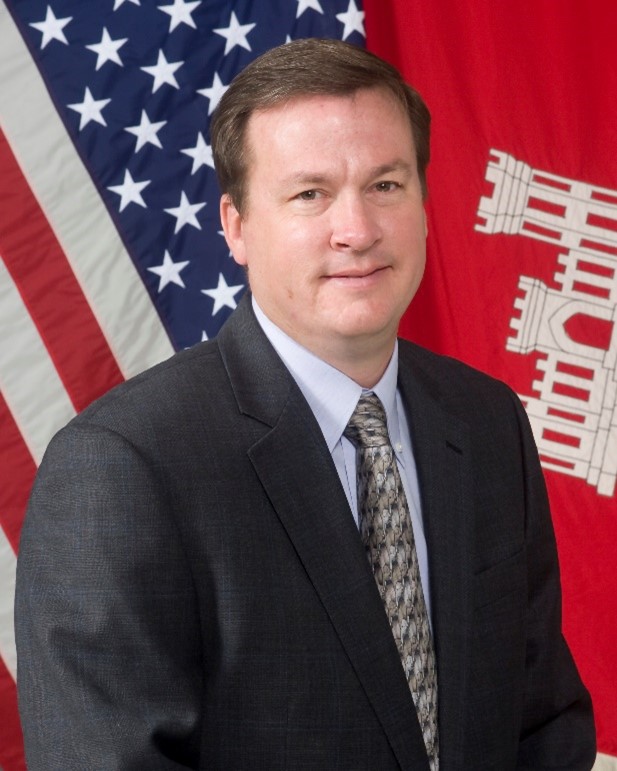
Dr. S. Keith Martin
U.S. Army Engineer Research and Development Center Coastal and Hydraulics Laboratory
Dr. S. Keith Martin – Dr. Martin is the technical lead for the ship simulation group at the U.S. Army Engineer Research and Development Center (ERDC)’s Coastal and Hydraulics Laboratory (CHL). His expertise includes navigation channel design, ship simulation, and numerical modeling. Dr. Martin’s specialized experience includes 10 years of experience in ship and craft simulation and 15 years of experience in hydrodynamics and transport modeling. He has been the principal investigator on numerous modeling and simulation projects, including the Charleston Harbor Post 45 study and the Lake Borgne Surge Barrier project. Dr. Martin is also an author on numerous publications related to his modeling and simulation work.
Dr. Martin holds both a Bachelor’s and Master’s Degree in Physics from Louisiana Tech University and a Doctorate in Civil Engineering
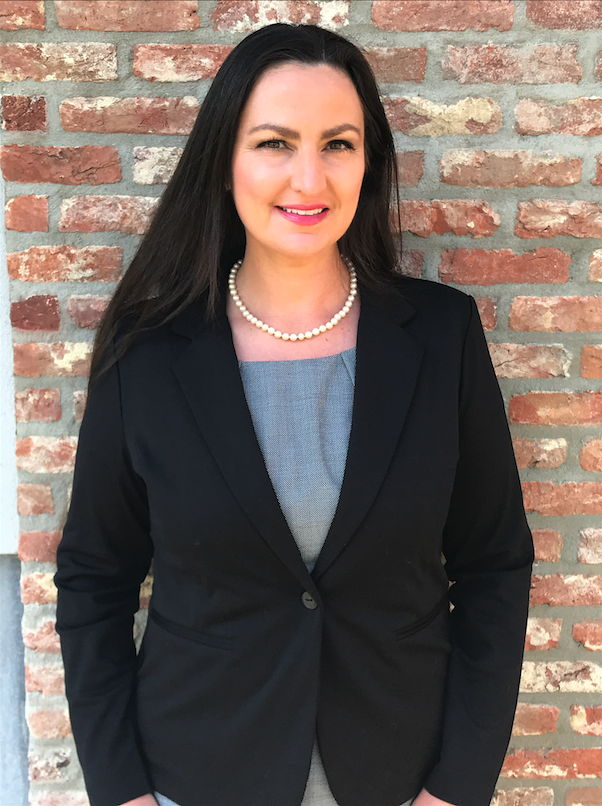
Elspeth McMahon
Associate Vice President for Maritime Initiatives, Old Dominion University
Elspeth McMahon is Old Dominion University’s inaugural Associate Vice President for Maritime Initiatives. She has nearly twenty years of dynamic experience in the commercial, military, and education sectors of the maritime industry. McMahon is currently a Commander in the United States Navy Reserves and has extensive experience working for Military Sealift Command as a Strategic Sealift Officer. She holds a USCG Chief Mate’s License and has sailed commercially for Maersk Lines, Limited.
With a passion for maritime education and training, she spent almost a decade as an Assistant Professor in the Marine Transportation Department at the State University of New York Maritime College. There, she educated the next generation of licensed deck officers, teaching everything from Leadership to Ship Stability.
McMahon holds an undergraduate degree in Marine Transportation from Massachusetts Maritime Academy, a Master’s Degree in International Transportation Management from State University of New York Maritime College, and a Master’s Degree in Maritime and Air Transport Management specializing in maritime research from the University of Antwerp, Belgium. She is nearing the completion of her doctoral degree in Nautical Sciences at the University of Antwerp, focusing on the future roles and training of mariners with the onset of autonomous shipping. McMahon is now working to make ODU the leader in all things maritime – both in the Hampton Roads region and beyond.

Captain Sean P. Meagher
Worth Avenue Yachts/ MY Latitude
Born and raised on the waters of Cape Cod, Sean is accredited with being the youngest captain ever at Hyline Cruises. He has expertise in yacht management, charter and sales. Sean captained the only private yacht ever to circumnavigate Svalbard, punching within 500 miles of the North Pole, and he was the captain that led M/Y LATITUDE through the Northwest Passage twice in both directions in consecutive years.
When not exploring the far corners of the earth he was the lead designer on a megayacht refit and delivery captain for Oceanco’s massive 109m BRAVO EUGENIA. Captain Sean also has a passion for preserving the place he has called home for so many years. He is heavily involved in Ocean Voyages quest for a plastic free ocean along with many other conservation projects.
Sean holds a masters unlimited license in sail and power.
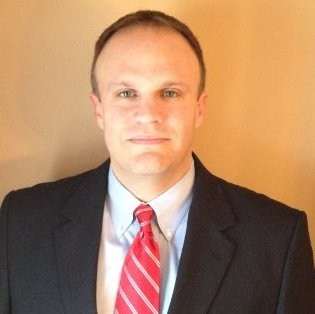
Derek Moss
Business Development Director for North America, Iridium
Derek Moss is the Business Development Director for North America with Iridium. Iridium is the only 100% truly global mobile voice and data satellite communications company in the world offering coverage of the entire globe, pole to pole. Derek has been with Iridium since 2019 supporting both end customers and channel partners providing a vast array of solutions to the maritime, land mobile and iot markets.
In the maritime market, he works with Iridium partners to identify and implement solutions spanning the merchant shipping, workboat, autonomous vessels, leisure boating and fisheries/commercial fishing markets. Most recently, supporting the rollout and implementation of Iridium GMDSS (Global Maritime Distress & Safety System).
Derek supports an ecosystem of Iridium partners (developers, manufacturers, service providers) throughout North America that support mariners at sea…whether via personal communication/messenger/tracker devices, satellite phones, Push-To-Talk devices and narrow/mid & broadband terminals for primary or back-up connectivity including safety at sea.
Based in Cape Cod but a regular attendee at shows such as PME, Workboat and various other boat/industry shows.
Miya Pavlock
NOAA, Office of Coast Survey
Miya is the lead of the External Source Data team within NOAA’s Office of Coast Survey, Hydrographic Surveys Division. Previously, she was a member of the National Bathymetric Source team, working to create an authoritative bathymetric database that combines numerous data sources to update navigational charts, S-102 datasets, and other products. Miya holds a B.S. in Oceanography from the University of Washington and an M.S. in Marine Science focused in Physical Oceanography from Moss Landing Marine Labs – California State University, Monterey Bay.
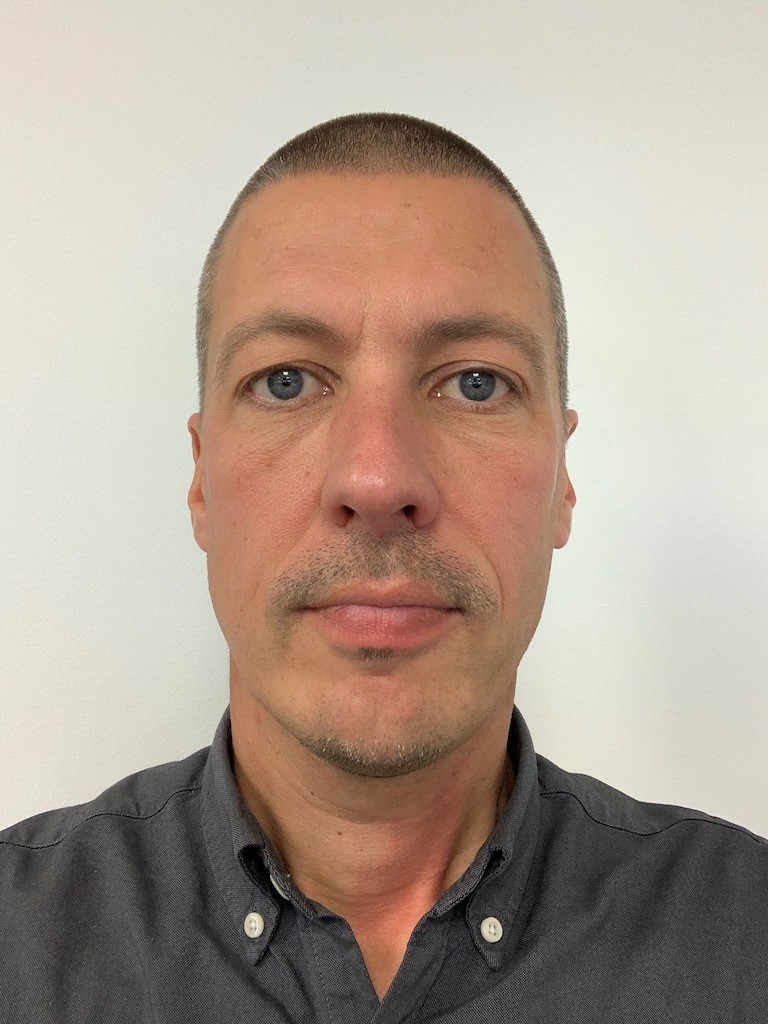
Jakob Poulsen
Development Manager, Trelleborg
Jakob Poulsen is Development Manager, responsible for the software development in Trelleborg’s Navigation & Piloting solutions. In 2008 Jakob joined the Navigation & Piloting team as a software developer, here he has been part of the development of the SafePilot solutions from the very beginning, and over the years he has participated in developing, delivering, and subsequently supporting the PPU systems for pilot organizations all around the world.
Jakob has a Master of Science in Physics and Computer Science.
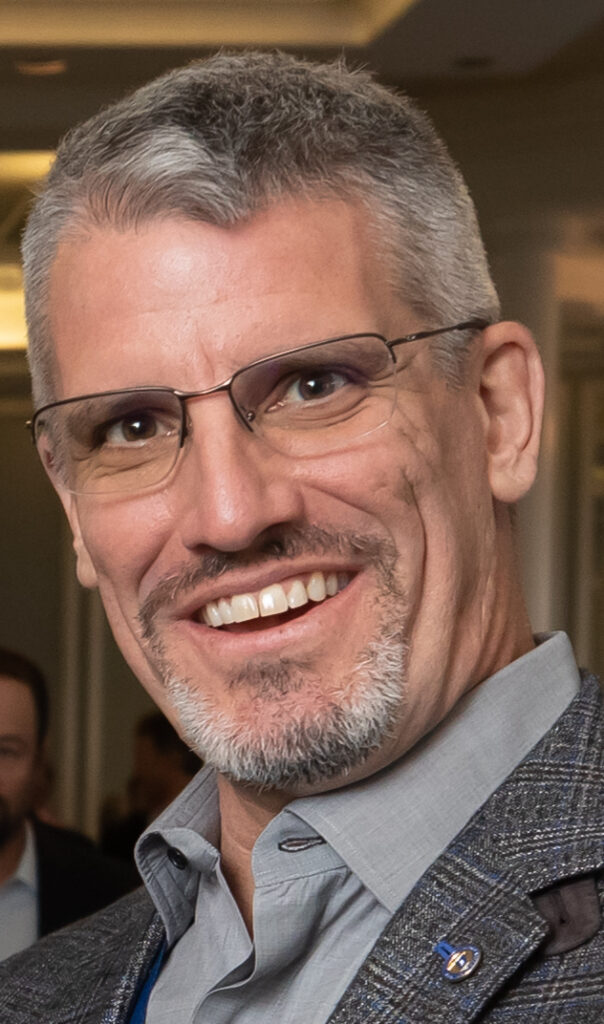
CAPT Jonathan Samuell
Houston Pilots
Captain Jonathan Samuell currently serves as the Chairman of the Pilot Boarding Safety Working Group for the American Pilots Association (APA). He also continues to serve as the Vice-Chairman for the APA’s NavTech Committee for the past 6 years.
Jonathan also currently works as an active Pilot on the Houston Ship Channel for the last 15 years. As a member of the Houston Pilots (HP), he has served as Chairman of the HP’s eNav Committee for 10 years. Jonathan is an active member in several maritime industry organizations including the NI, RIN, CAMM, IFSMA and MTS.
Prior to working as a state-licensed Pilot, Jonathan served aboard various deep sea/drilling vessels and harbor tugs for 15 years. He sailed as Master for 6 years and spent 1 year ashore as vessel manager. Jonathan is licensed by the USCG as Master (any gross tons upon oceans) and as Offshore Installation Manager (unrestricted).
Jonathan is a graduate of Texas A&M University at Galveston earning a BS in Marine Sciences and the university award for Excellence in Research. He is married with twins in high school and currently resides in Houston, Texas.
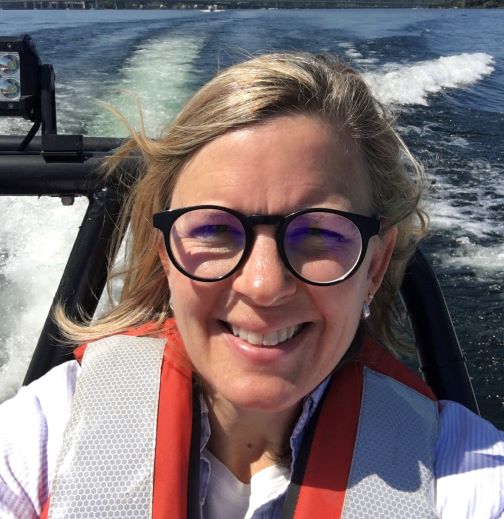
Sarah Scherer
Transportation Institute
Sarah’s maritime career started in 1989 as a Cadet at Texas A&M University at Galveston (TAMUG) which is also the Texas Maritime Academy. After earning a bachelor’s degree in Marine Sciences and an Unlimited Tonnage Third Mates License from the US Coast Guard, she enjoyed working in various parts of the Maritime Community. Her sailing endeavors included work on supply boats, tugs, landing crafts, high speed catamarans, seismic and fisheries research vessels from the South Pacific Ocean to the Bering Sea. One of her shoreside adventures included being the Assistant Scientific Support Coordinator for the Pacific Northwest, Hawaii and Oceania with NOAA HAZMAT providing scientific support during Oil or Hazardous Material Spill Incidents to the USCG or US EPA.
Sarah’s introduction to commercial shoreside operations began with Foss Maritime Company in the Health & Safety Department. In Dec 2007, she earned a master’s degree from the Leadership Institute of Seattle in Leadership and Organizational Development. She continued her career as a Regulatory Training Manager for Crowley Maritime Corporation on the Gulf & East Coasts and the Caribbean. Sarah stepped away from the maritime industry for a couple of years doing leadership and organizational development. She moved back to Seattle and into the fishing industry as a Safety Manager for Coastal Villages Region Fund. She then took the helm of the Seattle Maritime Academy for 4 years. Most recently she was the Maritime and Manufacturing Advocate within the Office of Economic Development for the City of Seattle. As part of the Key Industry Team, she supported an inclusive economy agenda, focusing on the industries that drive the regional economy through trade, innovation and middle-wage career opportunities. |
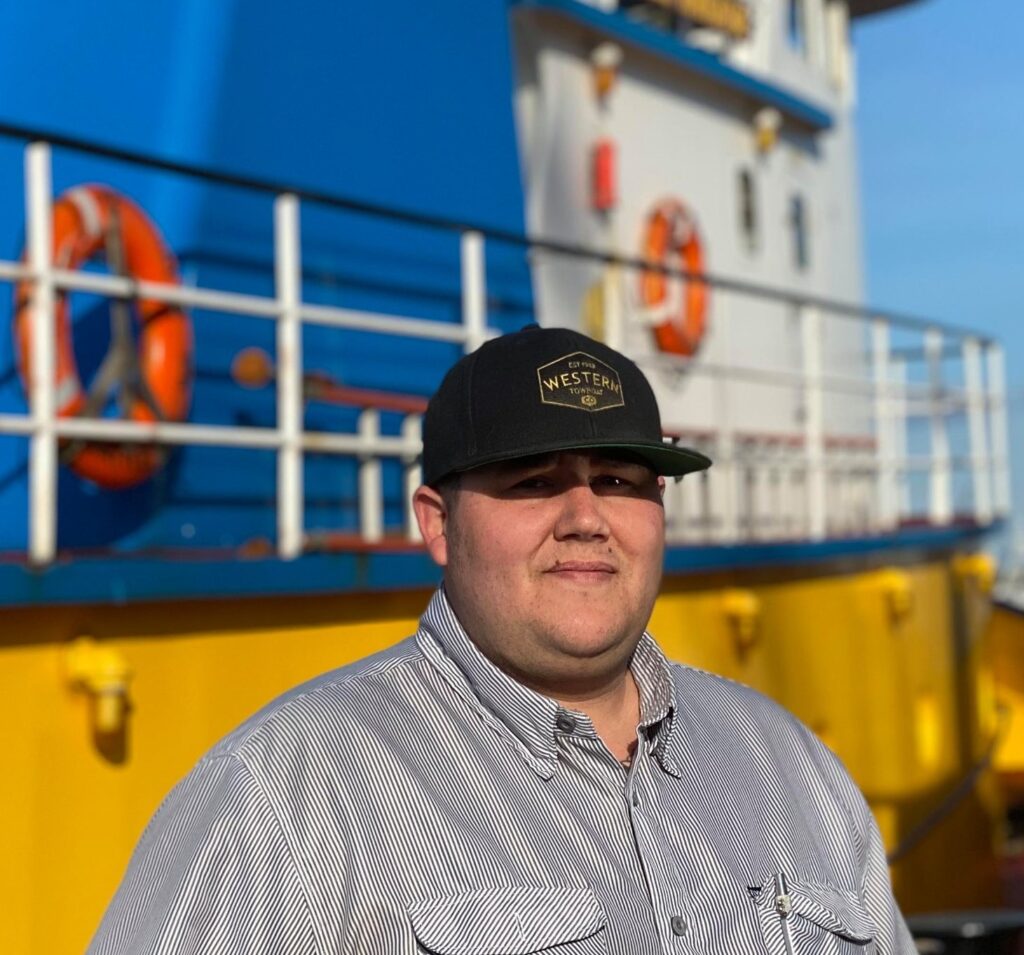
Russell Shrewsbury
Vice President of Western Towboat Co
Russell Shrewsbury is the Vice President of Western Towboat Co in Seattle, WA. As Vice President he oversees the day-to-day operations of 22 tugs as well as Western’s own shipyard where his family designs and builds their own tugs. Russell has worked on tugs sailing since childhood up to when he attended California Maritime Academy in 2006 with a BS in Marine Transportation. Russell brings a hands-on approach to Western Towboat, assisting in training new captains, working on new vessel design and technologies with his experience running multiple types of towing vessels. Western Towboat is now transitioning into its 3rd generation of management by the Shrewsbury family and is celebrating 75 years of towing service.
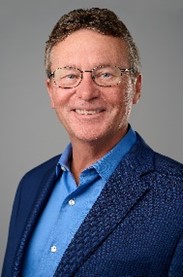
Chuck Stoffer
UHU Technologies
Technology professional with a BSEE & MBA and 40+ years’ experience in the Semiconductor Test & Measurement Industry for Commercial, Medical and the Aerospace & Defense markets. My main areas of focus for the past 20 years have been in the RF Wireless and GPS/GNSS market segments. Roles have included Sr. Management in both Sales and Service, Tactical Sales, and Strategic Key Account Management.
Specialties: GPS/GNSS simulation for test and characterization of all receivers and navigation systems for both military and critical infrastructure applications.
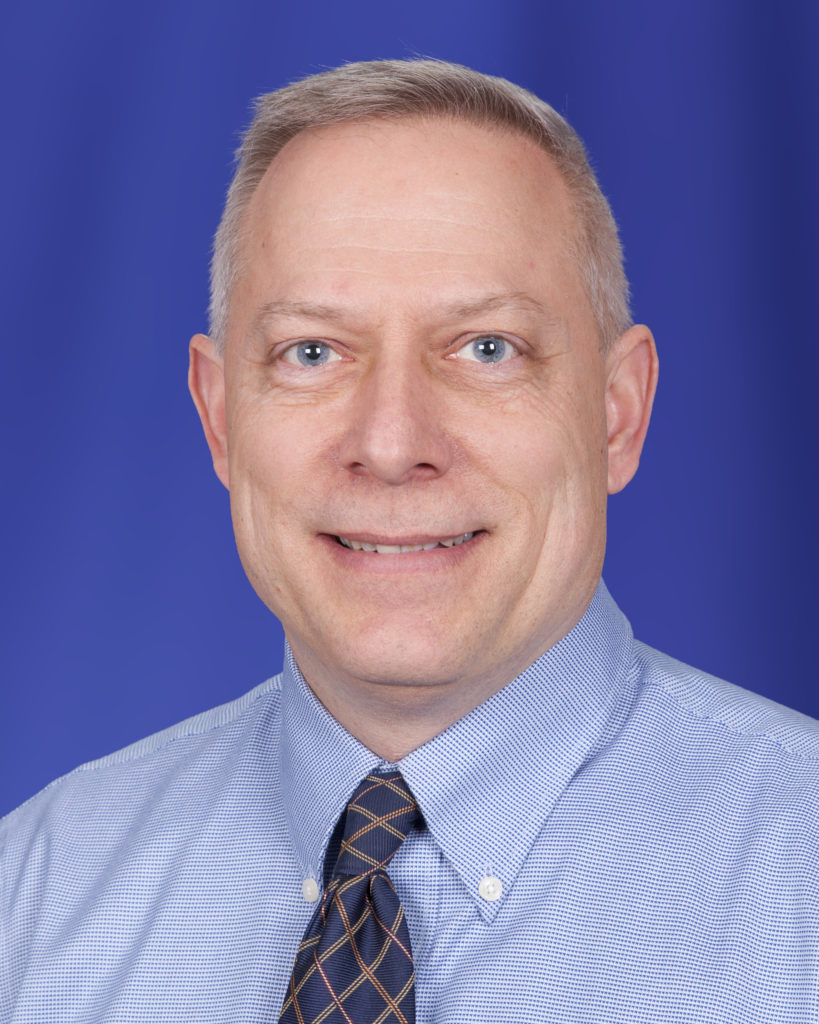
Gerald Thornberry
US Army Corps of Engineers
Gerald Thornberry has served the U.S. Army Corps of Engineers (USACE) for almost 15 years. He is an alumnus of the University of Louisville where he earned a Bachelor of Science degree in Geography (Environmental Analysis). Gerald got his start at USACE as a Hydrographic Surveyor, Dredge Inspector, GIS Specialist, and supporting Emergency Operations. Currently, he is a Marine Information Specialist supporting USACE’s enterprise navigation programs and hydrographic surveying community. Gerald’s primary focus is on the Inland Electronic Navigational Charting (IENC) Program and eHydro, the USACE hydrographic survey repository. Gerald is a member of the Inland Electronic Navigational Charting Harmonization Group (IEHG), co-chair of the U.S. Committee on the Marine Transportation System (CMTS) Future of Navigation Integrated Action Team (FutureNav IAT), and the U.S. representative to Working Group 125 (River Information Services) of the World Association for Waterborne Transport Infrastructure (PIANC). In addition to working for USACE, Gerald has been a GIS software and database developer in the private sector. He got his first experience in GIS while serving as a Signals Intelligence (SIGINT) Analyst in the US Army in the 1990s.
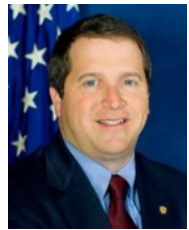
CAPT Morgan Turrell
Director, National Transportation Safety Board
MorganTurrell began working at the National Transportation Safety Board in September of 2003. He was named Director, Office of Marine Safety in February 2021. He is responsible for the investigations and report development of Major Marine Casualties in the United States, and on US vessels worldwide.
Since joining the Office of Marine Safety, Morgan has led or participated in many notable cases, including the Staten Island Ferry Allision (2003) and the Baltimore Water Taxi Lady D capsizing (2004). He was the IIC for the investigation into the sinking of the Ethan Allen in Lake George, NY, (2005) for which the NTSB awarded Morgan the Dr. Joseph Nall award.
From 2007 to 2010, Morgan was the Vice President of Marine Investigations for Princess Cruises where he investigated casualties aboard ships worldwide for Carnival Corporation. Since returning to the agency, Morgan has represented the NTSB at the International Maritime Organization in London and the Marine Accident Investigators International Forum (MAIIF). He was the NTSB investigator for the Costa Concordia accident in Italy (2012). In 2014, Morgan was named the Chief of Investigations in the Office of Marine Safety. He led the agency’s investigation of the El Faro sinking, including the successful retrieval of its voyage data recorder. In 2017, Morgan was named the Deputy Director for OMS.
After graduating from the United States Merchant Marine Academy in 1987, Morgan served as a licensed deck officer aboard a variety of commercial vessels including tankers, container ships, rollon/roll-off, and bulk carriers. He was Project Manager at the University of Washington’s School of Oceanography and captain of its research vessel Thomas G. Thompson, conducting operations in the Pacific Ocean.
Morgan earned an MBA from Pepperdine University, a Certificate in Dispute Resolution from Pepperdine Law School and an MA from George Mason University in Transportation Policy, Operations and Logistics. He is still licensed by the United States Coast Guard as Master of ocean vessels of any gross tons.
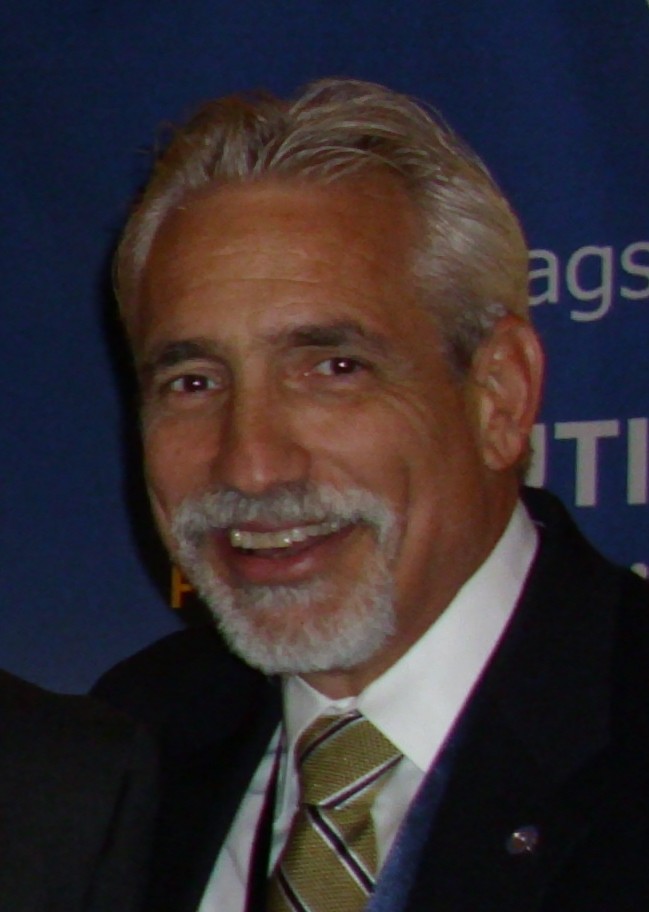
Captain Jorge Viso
President, American Pilots Associaton
Captain Jorge Viso was elected President of the American Pilots’ Association (APA) in 2016. Prior to being elected APA President, Captain Viso served in numerous other leadership positions, including Vice President of the APA’s South Atlantic States; President of the Florida State Pilots’ Association; and Chairman of the Tampa Bay Pilots’ Association.
After completing an enlistment in the U.S. Coast Guard (1978-81), where he served aboard two cutters and advanced to Quartermaster Second Class, Captain Viso earned an appointment to the U.S. Merchant Marine Academy at King’s Point. He graduated from King’s Point in 1985 with a Degree in Marine Transportation and Nautical Science. He served as a pilot in the ports
of Tampa Bay, Florida from 1990 through 2016. Prior to becoming a State-license pilot, Captain Viso served aboard harbor tugs, before sailing deep sea on chemical, product and crude oil tankers. In addition to his Florida State pilot license, he holds U.S. Coast Guard credentials as Master of Steam and Motor Vessels (Limited Tonnage) and Chief Mate of Steam and Motor Vessels (Unlimited Tonnage). He also holds a federal First Class Pilot Endorsement for the waters of Tampa Bay and its tributaries.
Captain Viso also served as Chairman of the APA’s Navigation and Technology Committee (NAVTECH) from 2002 until taking office as APA President.
The American Pilots’ Association is the national trade association of professional ship pilots. Its membership is composed of more than 50 groups of State-licensed pilots, comprising over 99% of all State pilots in the country. All three groups of United States registered pilots in the Great Lakes are also APA members. There are approximately 1,200 individual pilots in the APA member pilot groups. The APA was established in 1884 to protect and improve the state pilotage system, to maintain the highest possible professional standards for licensed pilots in the United States, and to promote navigation safety.
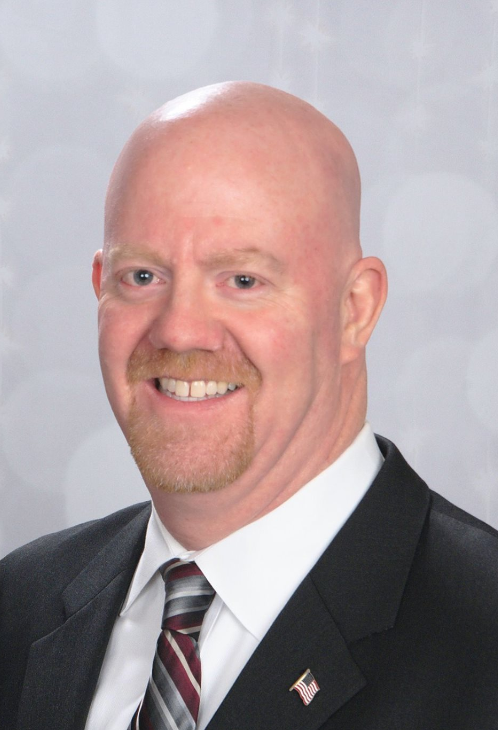
Darren Wright
NOAA , Precision Marine Navigation
Darren Wright is the Precision Marine Navigation Program Manager of NOAA’s Office of Coast Survey (OCS). Darren has been with NOAA since 1984 and worked in operational oceanography and meteorology for over 34 years before moving to the National Weather Service (NWS) over five years ago. There he was responsible for improving coastal, offshore and high seas forecast products and services for the NWS. Darren recently moved to OCS and is now using his past NOAA experience to work with other NOAA line offices, federal agencies and the marine community to provide NOAA’s important marine navigation information such as nautical charts, bathymetry, water level, currents and weather in an internationally standard format for navigation system manufacturers to create data overlays and dynamic displays.
